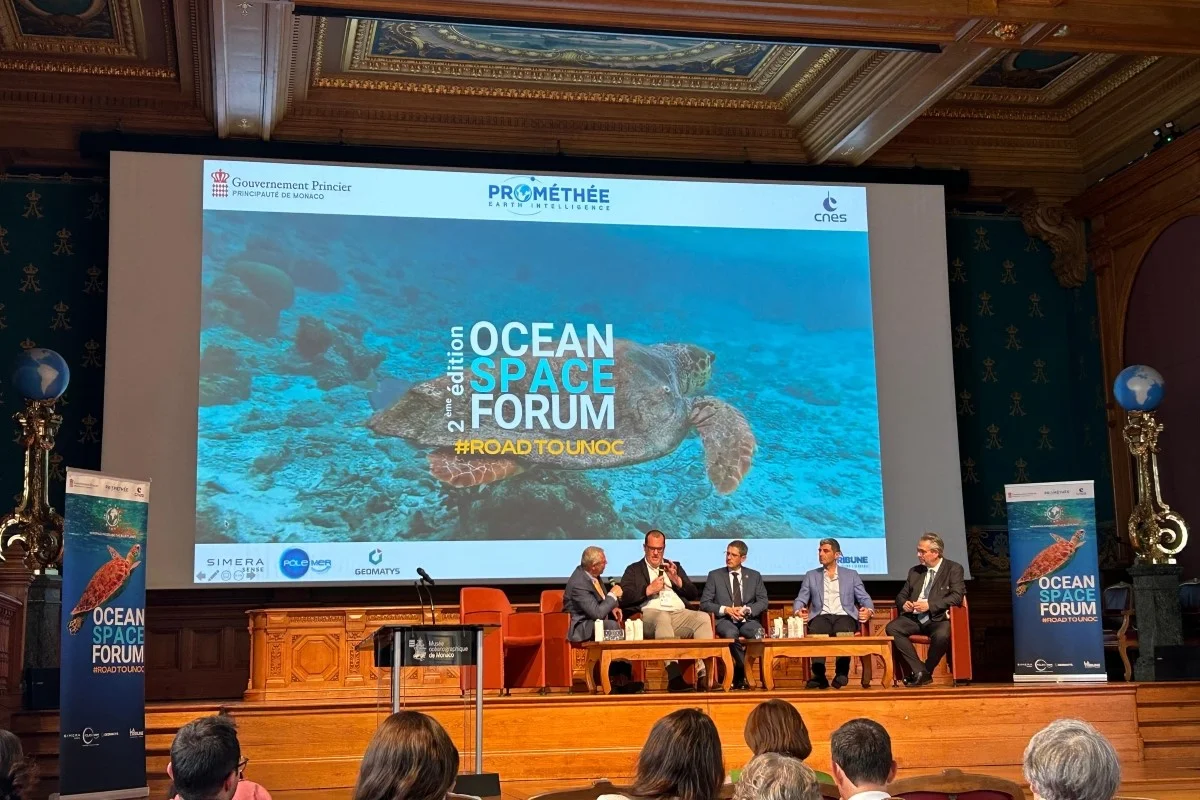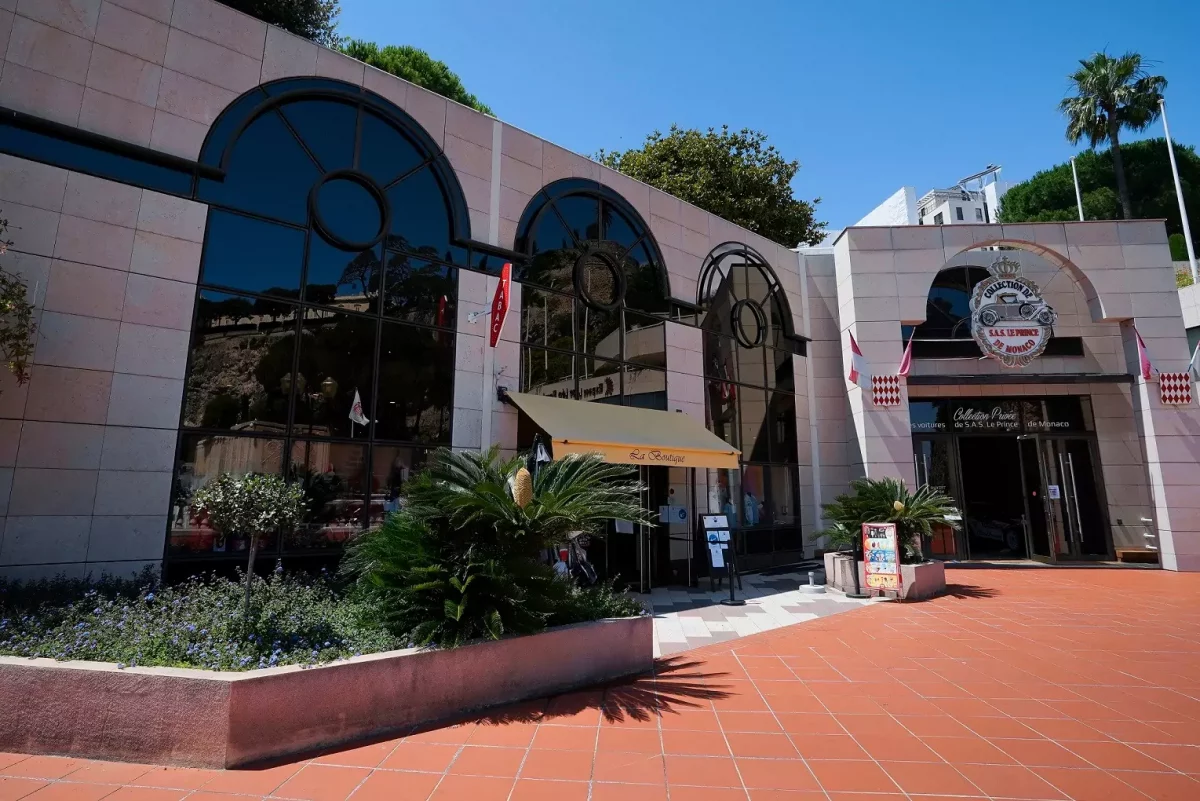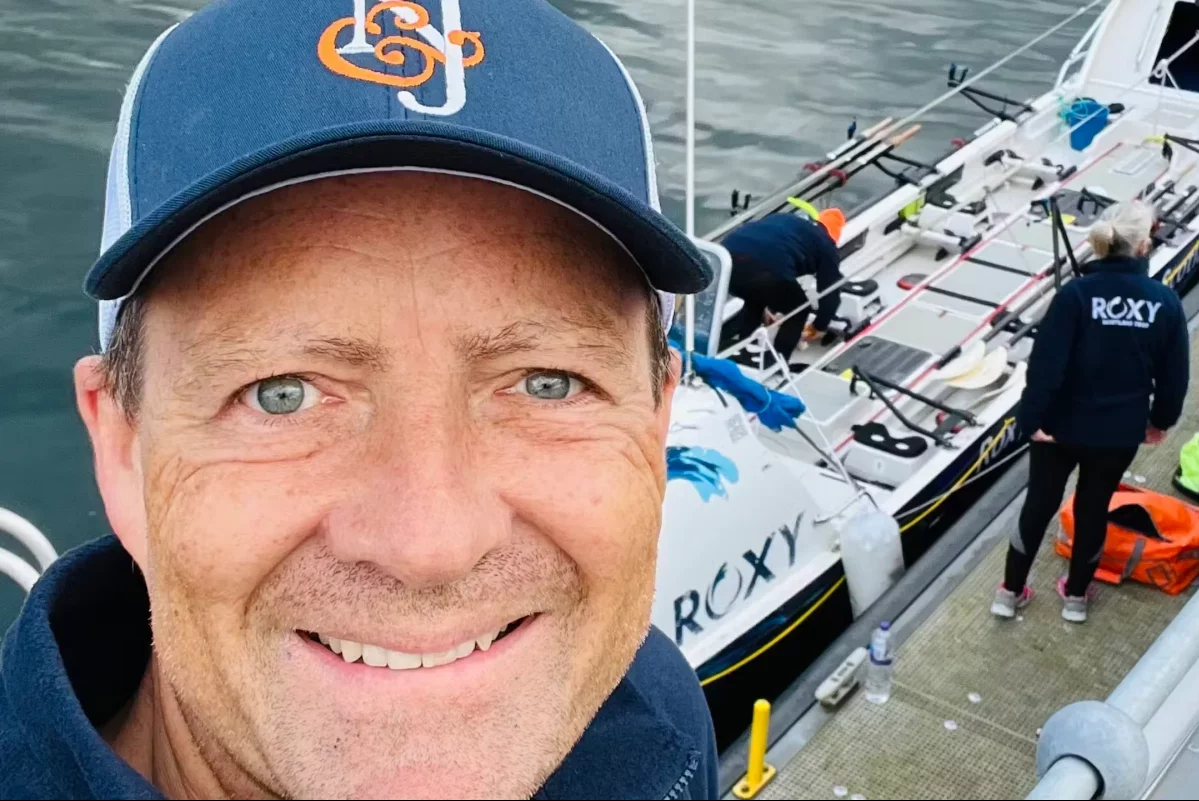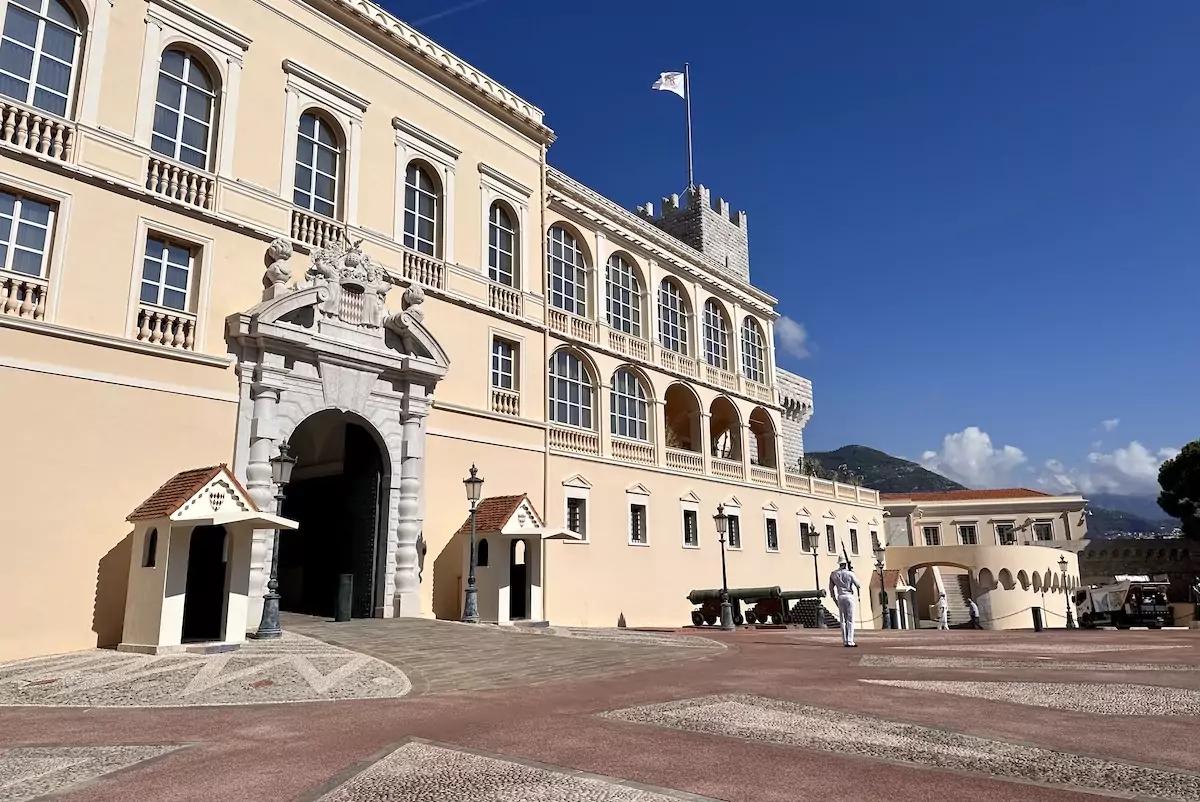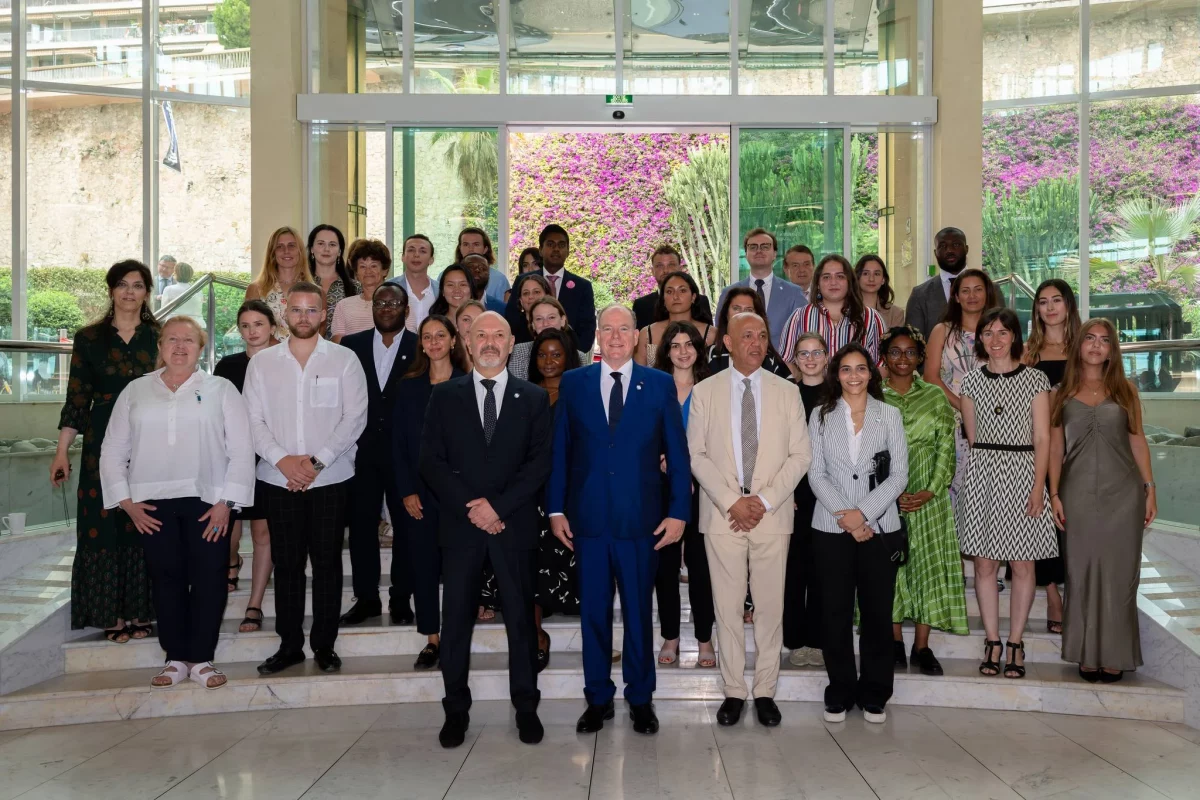The role of satellite data and space technologies in mitigating climate change and increasing our understanding of the challenges facing the world’s oceans was the focus of the recent Ocean Space Forum, which united leading figures from the spheres of science, politics and the economy for a series of fascinating discussions and conferences in Monaco earlier this week.
The 2024 Ocean Space Forum was held at the Oceanographic Museum of Monaco on 2nd July. Organised by the Monaco Government’s Space Affairs Office in collaboration with the French National Centre for Space Studies (CNES) and the French publication Prométhée Earth Intelligence, it sought to promote the potential advances that could be gained through the integration of space technologies into ocean studies and research.
Speaking via video link, Prince Albert II of Monaco addresses those gathered, saying, “Today’s programme will illustrate how space data can be a valuable tool for ocean health and sustainability. It allows us to understand our oceans better globally and in real-time… This data is now more advanced, precise and accessible than ever, and deserves to be fully utilised to achieve our ambitious environmental goals.”
See more: Ocean Space Forum to explore the tech intersection of these two frontiers
Among those in attendance were scientific, political and economic leaders from various governments, institutions and international bodies, who united beneath one roof to discuss critical topics such as marine ecosystem preservation, Blue Economy development and climate change mitigation.
Monaco Life joined the audience to learn how advancements in space technologies are contributing to improved monitoring and management of marine ecosystems the world over.
Indeed, the borderless nature of space, paired with the growing will to promote global responsibility for environmental protections, was a key theme of the event.
“We are at a critical juncture in terms of ocean protection,” said Susana Salvador, Executive Secretary at Accobams. “There is a military, geopolitical crisis now, and it’s our duty to protect the oceans and vulnerable communities who depend on the ocean.”
The forum also explored the role of satellite data in enhancing our understanding of the health of coral reefs, mangroves and salt marshes, which are all vital for carbon capture. The affiliated technologies allow for real-time observation of environmental changes, aiding in habitat protection and conservation.
“An important aspect is that these innovations are shared by the international community, as social and cultural concepts play a big role in ocean conservation,” said Patrick Vincent, Scientific Advisor to the Special Envoy of the President of France for the United Nations Ocean Conference.
Vincent also highlighted Copernicus as a successful example of ocean conservation. Copernicus is an EU-funded program dedicated to monitoring and protecting the Earth’s environment, including the oceans, through comprehensive satellite and ground-based data collection.
Other related areas that were touched on included the role of space technologies in collecting data on sea levels, ocean temperatures and currents. These insights are essential for understanding the impacts of climate change and developing adaptation strategies for coastal cities and vulnerable ecosystems. Satellite monitoring can also be used to detect illegal activities, such as unlawful fishing.
Jean-Charles Tonelli, Scientific Advisor at Grogenics, stressed, “Ocean protection goes hand in hand with climate change.”
The Blue Economy
Another focal point was the development of the Blue Economy and how integrating space technologies into marine resource management can open new avenues for sustainable economic growth, including fisheries monitoring, marine resource management and improved maritime security.
“Only 8% of the oceans are under protection; that’s why we need to do more in terms of ocean preservation,” said Romain Renoux, Executive Director at the MedFund.
UNOC 2025 preparation
Next year’s Ocean Space Forum will coincide with the United Nations Ocean Conference 2025, which will be dually hosted by the governments of France and Costa Rica in the city of Nice next year. It is predicted to unite more than 200 Heads of State and Government with the mission of advancing the UN’s Sustainable Development Goals.
“This second edition of the Ocean Space Forum builds on the success of its first edition in 2023 and sets the stage for the next event in Nice, alongside the third UNOC,” said Prince Albert. “I am convinced that space has much to offer in addressing the challenges of this crucial multilateral event.”
Read related:
Monaco to host Blue Economy and Finance Forum as part of 2025 UN Ocean Conference
Monaco Life is produced by real multi-media journalists writing original content. See more in our free newsletter, follow our Podcasts on Spotify, and check us out on Threads, Facebook, Instagram, LinkedIn and Tik Tok.
Photo by Monaco Life
